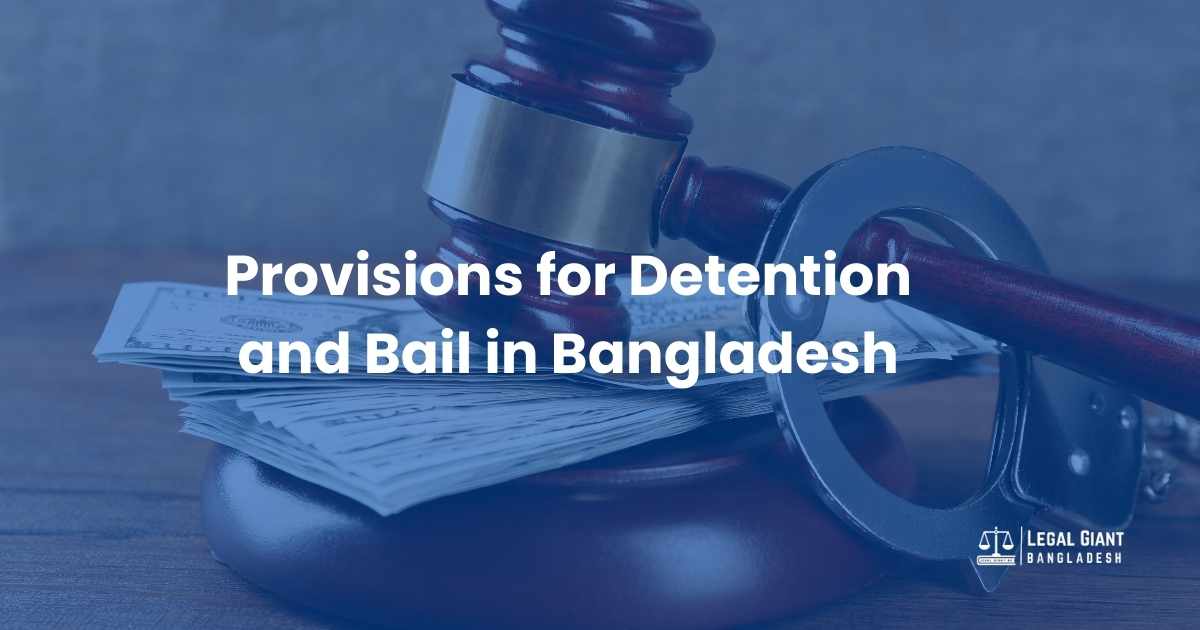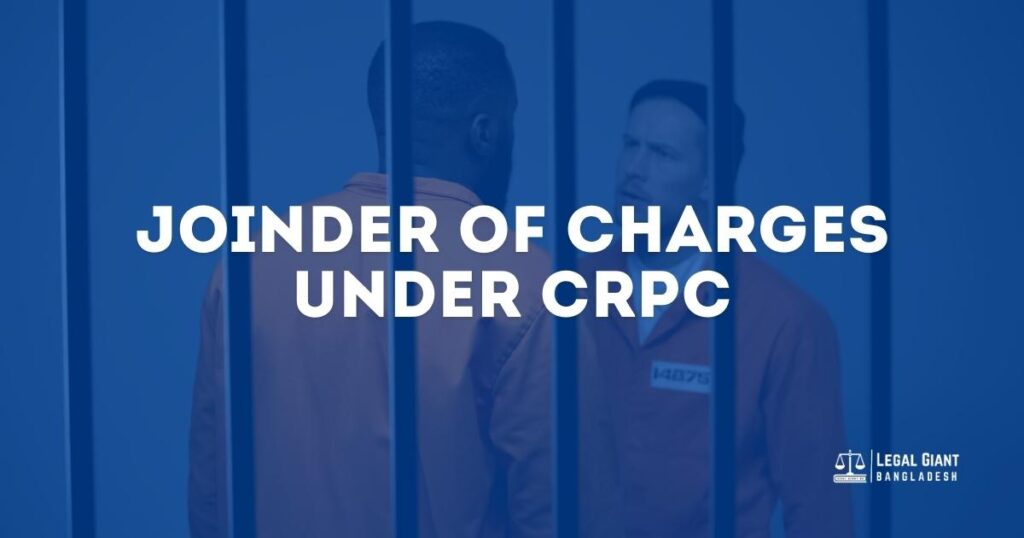The legal framework for detention and bail in Bangladesh is primarily governed by the Constitution of Bangladesh and the Code of Criminal Procedure, 1898 (CrPC). These laws aim to balance the rights of individuals with the needs of public safety and justice.

What is Detention?
Detention refers to the act of holding an individual in custody by law enforcement authorities, often as part of an investigation or following an arrest. In Bangladesh, detention can occur in two forms:
- Preventive Detention under the Constitution and special laws.
- Detention After Arrest under the CrPC.
Constitutional Provisions for Detention
- Article 33 of the Constitution ensures that:
- No person can be detained without being informed of the reasons for their arrest.
- Detained individuals must be presented before a magistrate within 24 hours of arrest.
- Preventive detention laws can only be enacted under specified conditions, and those detained must have the right to representation.
- Preventive detention laws, such as the Special Powers Act, 1974, allow the government to detain individuals for up to six months if deemed necessary to prevent harmful acts against public safety, law, or order. However, detainees have the right to challenge the grounds of their detention through judicial review.
CrPC Provisions for Detention
Under the Code of Criminal Procedure, 1898, detention after arrest is typically of two kinds:
- Police Custody: For investigation purposes, with limits set by Section 167.
- Judicial Custody: When remanded by a magistrate for longer periods during the trial process.
What is Bail?
Bail is the temporary release of an arrested individual from custody, usually under specific conditions, to ensure their appearance at trial. The concept of bail seeks to uphold the presumption of innocence until proven guilty.
Types of Bail in Bangladesh
- Bail as a Right (Bailable Offenses):
Under Section 496 of the CrPC, individuals accused of bailable offenses are entitled to bail as a matter of right. - Discretionary Bail (Non-Bailable Offenses):
For non-bailable offenses, courts have the discretion to grant or deny bail under Section 497 of the CrPC. Factors considered include:- The severity of the offense.
- Risk of the accused absconding.
- Likelihood of tampering with evidence or influencing witnesses.
- Anticipatory Bail:
Although not explicitly mentioned in Bangladeshi law, courts may provide anticipatory bail under judicial precedents, allowing individuals to avoid arrest until trial.
Legal Safeguards for Detention and Bail
- Right to Legal Counsel: Article 33(1) of the Constitution and Section 340 of the CrPC provide detainees with the right to seek legal advice and representation.
- Habeas Corpus Petition: Under Article 102(2)(b)(i) of the Constitution, individuals may petition the High Court Division for release if they believe they are being unlawfully detained.
- Mandatory Magistrate Oversight: Detention cannot extend beyond 24 hours without a magistrate’s approval, per Section 61 of the CrPC.
- Rights of Women and Minors: Special considerations and protections apply to the detention and bail of women, children, and vulnerable individuals under the Children Act, 2013 and related statutes.
Challenges and Recommendations
Despite robust laws, challenges such as delays in judicial proceedings, overcrowded jails, and misuse of preventive detention laws persist. Addressing these requires:
- Expedited case processing through judicial reforms.
- Stricter adherence to legal provisions by law enforcement agencies.
- Improved access to legal aid services for underprivileged detainees.
FAQs
What is the maximum period a person can be detained without being presented before a magistrate?
A person must be presented before a magistrate within 24 hours of arrest under Article 33 of the Constitution and Section 61 of the CrPC.
Can bail be granted for all types of offenses?
No, bail is a right only for bailable offenses. For non-bailable offenses, it is granted at the discretion of the court.
What is preventive detention?
Preventive detention involves detaining an individual to prevent potential threats to public safety, governed under special laws like the Special Powers Act, 1974.
What is anticipatory bail, and is it available in Bangladesh?
Anticipatory bail allows individuals to avoid arrest. Although not explicitly mentioned in the law, courts may grant it based on judicial precedents.
What recourse is available for unlawful detention?
Individuals can file a habeas corpus petition in the High Court Division under Article 102(2)(b)(i) of the Constitution.


